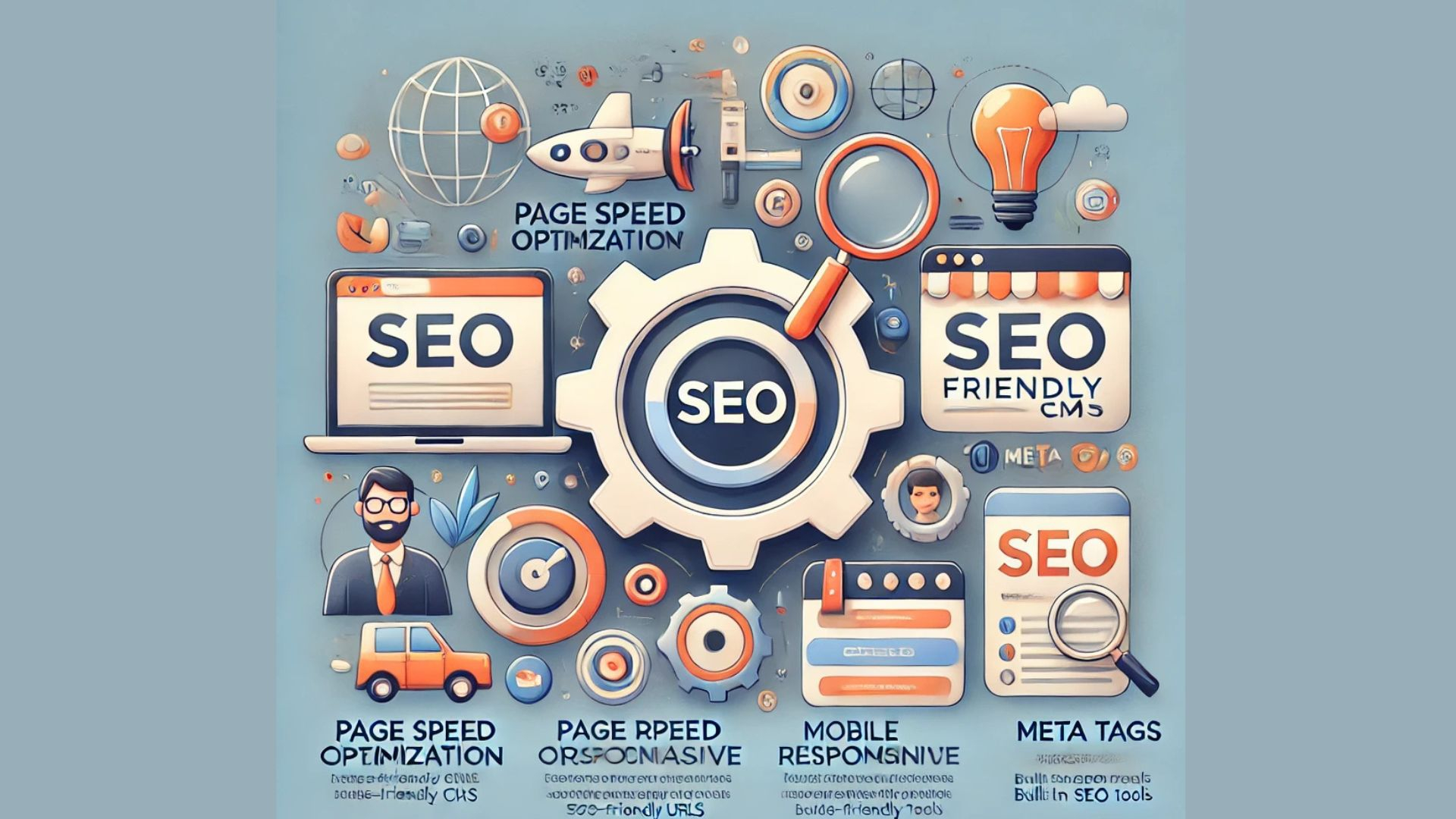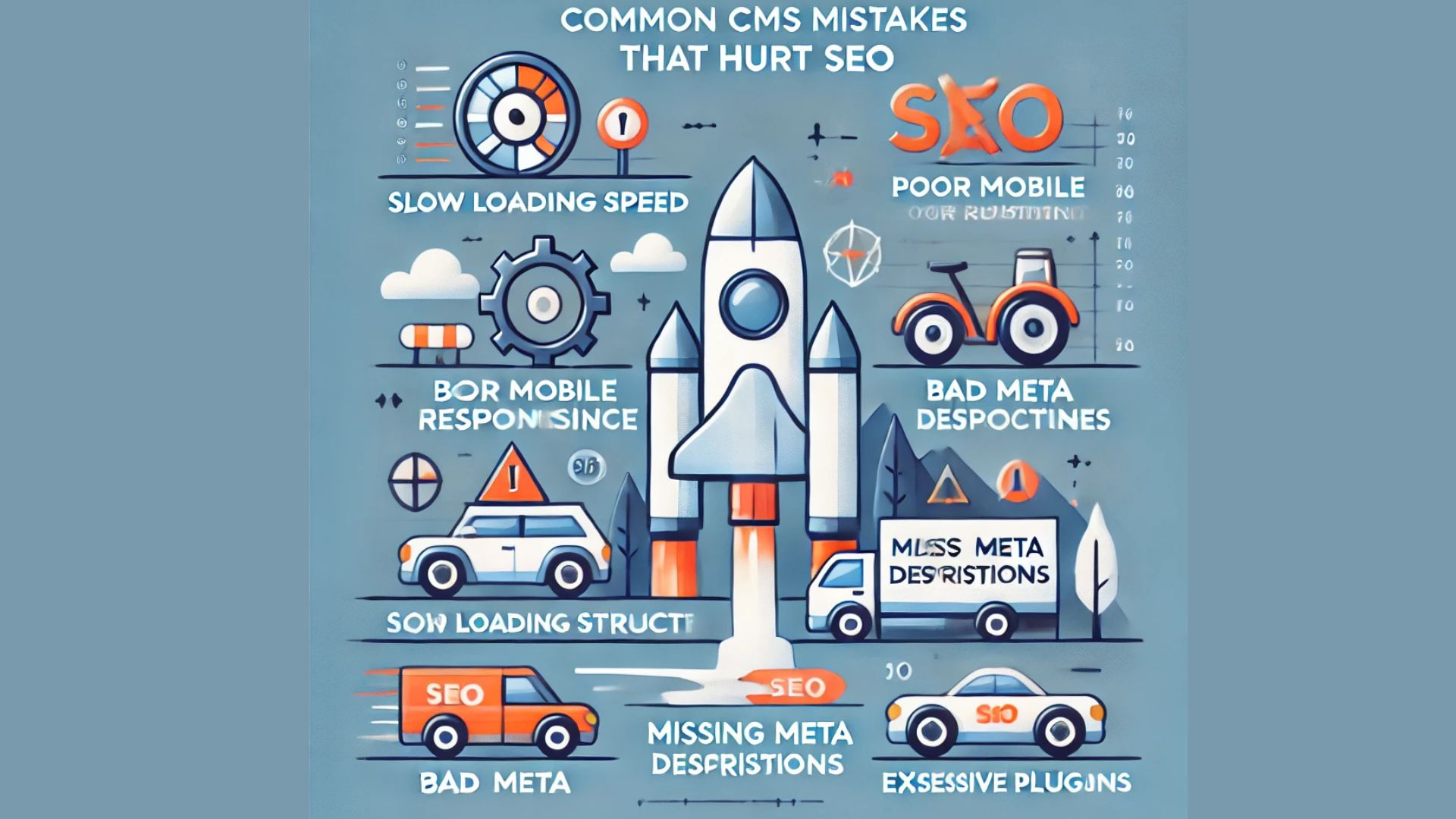Choosing the Right Content Management System for SEO

Imagine you’ve spent hours writing a great blog post with valuable insights and engaging storytelling. You hit publish, expecting a flood of readers, but weeks go by, and your article is nowhere to be found on Google’s first page. What went wrong?
Often, the problem isn’t the content itself—it’s the Content Management System (CMS) you use. A CMS can boost your chances of ranking high on search engines or hold you back with slow speeds, messy code, and poor optimization features.
Features to Look for in an SEO-Friendly CMS
Fast Loading Speed
Search engines, especially Google, prioritize websites that load quickly. Your rankings will suffer if your CMS is bloated with unnecessary code or slow themes. Platforms like WordPress (with lightweight themes) or Webflow (which produces clean code) are known for good performance.
Example:
Have you ever clicked on a website that took forever to load? You hit the back button. That’s precisely what Google wants to prevent, so it favours fast-loading pages.
Mobile Responsiveness
Currently, most web traffic comes from mobile devices. If your CMS doesn’t automatically adapt to different screen sizes, you lose potential readers and hurt your SEO.
Tip:
Test your CMS’s mobile-friendliness by running your site through Google’s Mobile-Friendly Test.
Customizable Meta Titles and Descriptions

Meta titles and descriptions influence click-through rates from search results. Your CMS should allow easy customization of these elements for every page and post.
Real-Life Mistake:
A business owner told me he couldn’t edit meta descriptions because his CMS didn’t support it. He switched platforms, optimized his pages, and within weeks, his traffic improved significantly.
Built-in SEO Tools or Plugin Support
A strong CMS either has SEO tools built-in or supports plugins/extensions that help with optimization. WordPress, for example, offers Yoast SEO and Rank Math, making on-page SEO easier.
The Best Content Management Systems for SEO
WordPress
Why it’s great:
- Highly customizable
- Extensive plugin library for SEO improvements
- Strong community support
It is best for Bloggers, small businesses, and even large websites.
Shopify
Why it’s great:
- Comes with built-in SEO features
- Fast and secure hosting
- Great for product-based businesses
Best for:
Online stores looking for an SEO-friendly, hassle-free platform.
Webflow
Why it’s great:
- Clean, fast-loading code
- Complete control over design and structure
- No need for extra SEO plugins
It is best for Designers, startups, and agencies that want complete creative freedom.
Ghost
Why it’s great:
- Focuses on speed and simplicity
- SEO-friendly out of the box
- No bloated code or unnecessary plugins
Best for:
Writers and bloggers who want a clean, fast website without distractions.
Common CMS Mistakes That Hurt SEO

Ignoring Image Optimization
Your website may load more slowly if you have large, uncompressed photos. Always use tools like TinyPNG to compress images before uploading.
Skipping Regular Updates
An outdated CMS can have security issues and performance problems. Constantly update your CMS and plugins regularly.
Overloading with Plugins
Your website may lag if you have too many plugins. . Only install what’s necessary for SEO and functionality.
Poor Internal Linking
Linking between pages helps Google understand your site structure. Make sure your CMS makes internal linking easy.
Understanding why people buy is just as important as knowing what they buy. By tapping into their lifestyles, values, emotions, and aspirations, businesses can create deeper connections and lasting relationships.
Next time you make a purchase, ask yourself: What’s really driving my decision? You might be surprised by the answer.
FAQs:
1. Which CMS is best for SEO?
WordPress is the most SEO-friendly CMS due to its flexibility, plugins, and strong community support.
2. Does a CMS affect website speed?
A poorly optimized CMS can slow down your website, negatively impacting SEO rankings.
3. Can I change my CMS without losing SEO rankings?
You need proper planning, 301 redirects, and careful content migration to maintain rankings.
4. Do all CMS platforms support SEO plugins?
No, some CMS platforms have built-in SEO tools, while others rely on third-party plugins for optimization.
5. Is a free CMS good for SEO?
It depends. Some free CMS options, like WordPress.org, offer great SEO features, while others may be limited.
- Educación
- Course
- Books
- Drawing
- Question
- Film
- Fitness
- Food
- Juegos
- Gardening
- Health
- Home
- Literature
- Music
- Networking
- Other
- Programming
- Religion
- Shopping
- Sports
- Curriculm
- Wellness


